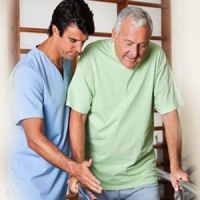The ESC Congress this year broke all previous records in attendance with nearly 32,773 registrations. Delegates from all over the world attended the Congress this year, bringing forth the latest medical research and the most advanced updates in the field of Cardiology.
As pointed out by ESC President, Professor Fausto Pinto, from Portugal. 40 percent of Europeans will suffer from CVD by 2030. The research and medical issues that were discussed at the ESC are thus relevant to not only health professionals but to everyone. Despite efforts to reduce mortality and morbidity, CVD continues to be the number one killer in Europe costing the European economy approximately 200 billion euros a year.
The Congress closed its doors today after five complete days of science and research. 28 clinical Hot Line presentations were made, 18 Clinical Trial Updates were presented, 20 Registry studies were discussed, five new Guidelines were communicated and 4533 abstracts were presented. All in all, the Congress was a resounding success.
Prof Geneviève Derumeaux, Chair of the Congress Programme Committee said: “ESC Congress 2015 has broken records in attendance! This reflects the excellent scientific content submitted to our congress. Cardiologists and other health professionals continue to see ESC Congress as “the” place to be in order to keep up to date with latest developments in cardiology and to meet experts from different fields of research and from all over the world.”
Here's a quick review of the best from the ESC:
- PATHWAY 2 highlighting the use of spironolcatone for resistant hypertension.
- The Leadless II trial, showing that a leadless cardiac pacemaker demonstrated to be safe and reliable.
- The BACC trial showing that patients arriving at the emergency department with chest pain suggestive of acute myocardial infarction (AMI) can be triaged more quickly and more safely using a new rapid assay with refined cut-offs.
- PRESERVATION I trial: An investigational material known as Bioabsorbable Cardiac Matrix (BCM) that is injected through the coronary artery to prevent cardiac remodelling in heart attack patients had no significant effect compared to a saline placebo
- CIRCUS trial showing that cyclosporine before PCI did not improve clinical outcomes in patients with anterior STEMI
“The wealth of new information in the scientific programme was reflected in the very dense press programme this year,” said Steen Kristensen, Chair of the ESC Press Committee. “Over 590 journalists registered for ESC Congress 2015 and many more followed the congress from afar. We have had coverage from China to Brazil.”
“Hot Lines are always the main focus of media attention and are reported all over the world. The ESC Congress is a great source of news for medical, financial and lay media.”
Other popular stories include:
- The benefits of naps - Midday naps are associated with reduced blood pressure levels and prescription of fewer antihypertensive medications.
- Prolonged television watchers have a higher risk of fatal pulmonary embolism, a condition associated with long haul flights.
- Pollution and CVD - studies show that particulate matter and NO2 air pollution are associated with increased risk of severe heart attacks despite being within European recommended levels.
“ESC Congress 2015 was about opening our eyes and opening our minds,” said Prof Derumeaux. “We chose to enlarge our scope this year by highlighting the interaction between the environment and the heart and particularly pollution as a risk factor for CVD. Some of these “new” risk factors will become more and more important. In this sense, I would also like to highlight Prof Elizabeth Blackburn’s (2009 Nobel Prize) thought-provoking presentations on premature ageing, showing the effects of stress on genes and, ultimately, on longevity.”
Source: ESC
Image Credit: ESC



























